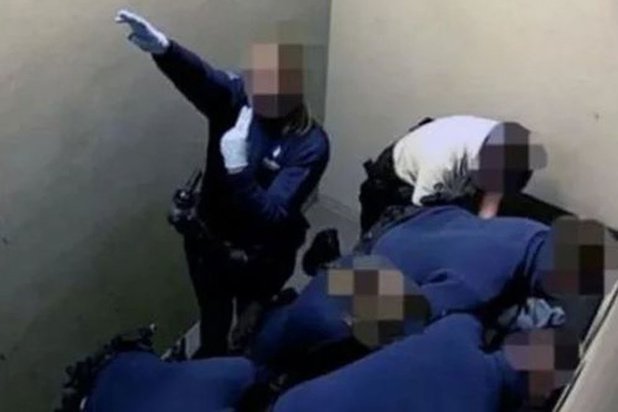The family of Jozef Chovanec, the Slovakian national who died after being manhandled by police during an incident at Charleroi airport in 2018, have welcomed the results of an enquiry into the case by the High Council for Justice, reported yesterday.
“We now hope that this report does not represent the last word on the matter,” said lawyer Ann Van de Steen, representing the family. “And that deaths such as that of Jozef Chovanec can be avoided in the future.”
The investigation by the High Council was triggered by video footage released in the summer, which showed the events leading up to the police decision to restrain Chovanec, as well as the incident inside the cell itself, when he was held down by police while one of their number gave a Nazi salute.
The High Council was considering only the matter of whether there had been suppression of evidence in the case, and concluded there had not. The matter of the treatment of the victim is still under judicial investigation.
“The Chovanec family realises that the task of the High Council consists of analysing the general functioning of the judicial system and, partly in view of the fact that the judicial investigation is still ongoing, it does not have the opportunity to comment on the content of the file,” the family said in a statement.
“The High Council for Justice is not a judge on the merits, nor is it a disciplinary body in this case,” the statement said.
The family also welcomed the report’s remarks on the conduct of the investigation, pointing out that it was the wife of the victim as well as the Slovakian ambassador who pressed for an investigation to even begin.
“Despite the fact that a man had died in a police cell, the prosecutor's office had not yet taken the initiative,” the statement said. “The High Council recommends an evaluation of the existing guidelines and practices in this regard.”
Meanwhile the police officer seen giving a Nazi salute in the video has had her appeal against suspension rejected by the Council of State.
The officer had argued the suspension from duty had made it impossible for her to apply for other jobs within the police force. She also claimed that it had made her the target of public reproach.
The first argument, the Council of State said, was not sufficiently important to warrant an emergency decision. On the second point, the suspension from duty was not in itself the reason for public reproach, but rather the video itself.
Alan Hope
The Brussels Times

